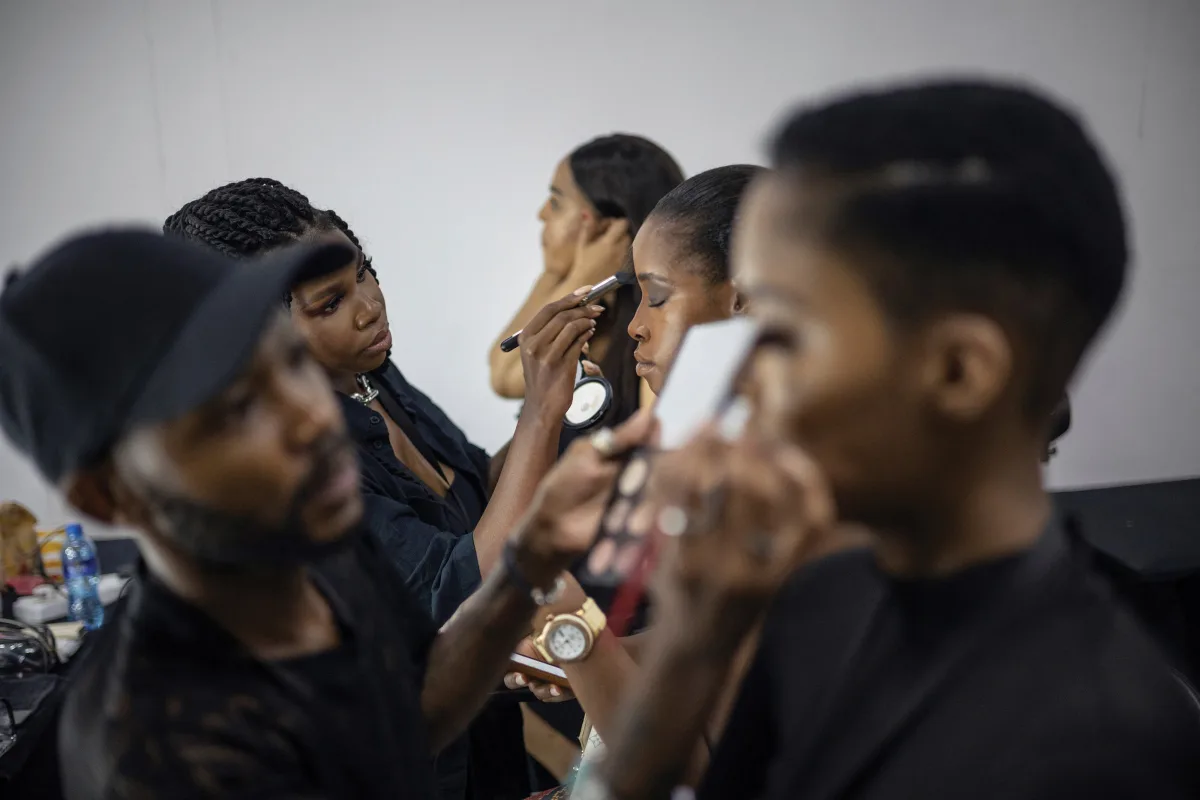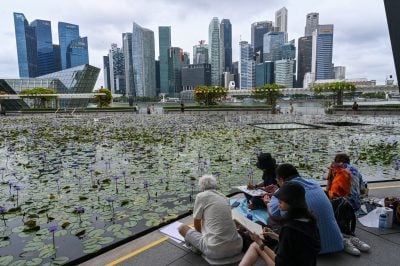Kanayo Awani, executive vice-president at the African Export-Import Bank (Afreximbank) has offered a forceful defence of the bank’s investments in Africa’s creative sector and how this can be a very positive force for good for the continent. Awani was speaking at the opening of the Creative Africa Nexus programme (CANEX) in the Algerian capital of Algiers. Held annually since 2021, the three-day CANEX event provides a platform for the continent’s cultural and creative talents to promote their work.
Awani, whose department oversees the CANEX programme, noted that while the creative sector in Africa is largely informal and struggles to attract capital and investment, it has huge potential to contribute to the creation of jobs and wealth on the continent. “Globally, the creative economy is valued at an astonishing $2 trillion and offers substantial revenue streams for small businesses, creating countless employment opportunities even for those who follow it,” she noted, adding that it “makes economic sense” for Afreximbank, a trade finance institution, to support the sector.
With a rapidly growing youth population, the creative economy could be an avenue to create the jobs and livelihoods that the continent needs. “With about 40% to 60% of the population under 25, the creative economy provides a unique opportunity to tackle youth unemployment by offering jobs in sectors such as fashion, music, film production and entertainment and in creating digital content,” Awani added, backing her argument with an estimate from the United Nations that the creative industry employs almost half of young people between the ages of 15 and 30.
Of this number, about half are women. According to Awani, this presents an opportunity to integrate young Africans, especially women, into the mainstream economy.
The Bank has already deployed nearly $500m of capital in the creative industries across a number of verticals, including sports, fashion, film and music. The CANEX WKND also included masterclasses in gastronomy – where the agriculture value chain comes into play – as well as a prize to support publishers in Africa and the Caribbean. It was noticeable throughout the activities that the “global africa” narrative that brings in the diaspora and the islands of the Caribbean was prominent throughout.
Rise of digital platforms
The rise of digital platforms and social media has dramatically reduced the barriers to market access traditionally faced by young African entrepreneurs, allowing them to showcase their talents and creativity through access to the internet. As Africa seeks to diversify its economies beyond traditional sectors such as agriculture, mining and oil, the creative economy offers a crucial opportunity for growth. By investing in creative industries such as music, film, fashion, and digital media, African nations can create new, sustainable sources of income and tap into one of the fastest-growing sectors globally.
“PwC projects that African entertainment and media markets will reach $4.6bn by 2025, while the sports sector is anticipated to exceed $12bn by 2027,” Awani noted. However, significant investments are required for the sector to reach its full potential. “We need to provide infrastructure and the policy environment for these industries to flourish. We also need to address issues of access to finance as well as ensuring that appropriate facilities, equipment and technology are available,” she said.
It is also important, Awani said, to create regulatory and legal frameworks that safeguard intellectual property (IP) rights to ensure that African creators are fairly compensated and are motivated to continue producing high-quality work.
She stressed the need for investment in skills development and education, pointing out that empowering creatives, particularly through digital literacy, mentorship, and skills development programmes, is crucial to ensure that the next generation of African creatives possesses the quality and competitiveness needed to succeed in their pursuits. “For Africans to be able to compete in the global world, they need to be equipped with those skills.”
Capturing value on the continent
IP remains an important component of capturing value on the continent and is especially critical when it comes to music. The African Continental Free Trade Area secretariat is helping structure a robust IP regime that will support African creators.
Awani said CANEX and the interventions that Afreximank has made in the sector are a response to this imperative to leverage Africa’s cultural and creative talents to achieve its development goals. In 2020, the bank launched a $500m facility to support the industry, which was expanded to $1bn by 2022. “And now in 2024, as of this week actually, we’ve also increased it to $2bn,” Awani announced, explaining that “the mission is to enhance Africa’s share of global trade in creative and cultural products by offering tailor-made financial solutions, facilitating technical capacity-building, supporting and focusing on strengthening our institutions, as well as opening avenues for market access for creative entrepreneurs.”
Beyond the economic potential, Awani said the African creative sector, through the arts, crafts, literature, film, music, sports and digital animation, is crucial to preserving and promoting Africa’s rich heritage and offers a powerful tool for both local and global communities to engage with African culture. It also helps bind together the diverse regions and peoples of the continent, transcending geographical boundaries to reach people of African descent all over the world. “Through music, film, literature and fashion, we can tell our own stories of resilience, ingenuity, innovation, diversity and success, ensuring that the continent’s history and heritage are presented authentically and remain relevant for future generations to come in the context of global Africa,” she said, quoting the renowned Nigerian author, Chinua Achebe, who said “If you don’t like somebody’s story, write your own.”
Interventions yielding results
Awani listed Afreximbank’s interventions in the creative sector, including the CANEX Book Factory Creative Writing Workshop with Nigerian writer Chimamanda Ngozi Adichie; helping African designers promote their work at the Tokyo and Paris fashion weeks; and partnering Egyptian jeweller Azza Fahmy to train over 5,000 jewellers and craftspeople from both Africa and the diaspora through the Trace Academia online platform.
The bank has also, through its Fund for Export Development in Africa, announced a $1bn film fund. Its CANEX Music Factory, launched in Abidjan in 2022, has supported collaborations between artists across the African diaspora and led to creative output such as the CANEX Music Factory album. CANEX is helping to digitalise Africa’s creative industries by providing access to digital tools and platforms, ensuring that African creatives can engage in the global digital economy and monetise their work effectively.
In sports, Afreximbank is partnering with organisations such as the Confederation of African Football and the Basketball Africa League to develop the sports value chain and create jobs. The bank has also invested in global sports ventures, including the Team Drop electric racing series, and supported infrastructure development, such as upgrading stadiums in Abidjan and Barbados.
This year’s CANEX also saw the presentation of the inaugural CANEX Prize for Publishing and awards to winners of the CANEX Shorts film competition.
Awani also announced that “the company will be making critical strategic investments across the creative value chain such as record labels, publishing companies, brands, copyrights and film to commercialise the intellectual property of African and diaspora creators and to also stem the exploitation of African ideas.”
Want to continue reading? Subscribe today.
You've read all your free articles for this month! Subscribe now to enjoy full access to our content.
Digital Monthly
£8.00 / month
Receive full unlimited access to our articles, opinions, podcasts and more.
Digital Yearly
£70.00 / year
Our best value offer - save £26 and gain access to all of our digital content for an entire year!

 Sign in with Google
Sign in with Google 



